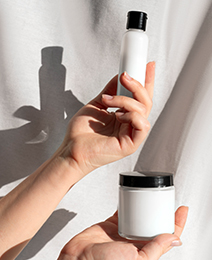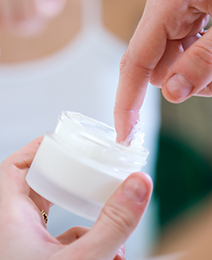If you’re looking to start or grow a hair care business, choosing between wholesale and private label hair products is one of the most critical decisions you’ll make. Each option has its advantages depending on your budget, branding goals, and target market. Understanding the difference between the two can help you determine which model aligns better with your business objectives.
In this article, we’ll break down the key differences between wholesale and private label hair products, examine the pros and cons of each, and help you decide which option is right for your beauty brand or salon.
What Are Wholesale Hair Products?
Wholesale hair products are pre-made items that you buy in bulk from a manufacturer or distributor at a discounted price. You resell them under the manufacturer’s brand or with minimal customization.
Pros:
- Lower upfront costs: No need to invest in custom packaging or product development.
- Quick to market: You can start selling immediately after purchasing.
- Trusted brands: You may sell well-known or established products that already have consumer trust.
Cons:
- No brand ownership: You’re promoting someone else’s brand, not building your own.
- Less control: You can’t change ingredients, formulas, or packaging.
- Competitive market: Many other sellers may offer the same products.
What Are Private Label Hair Products?
Private label hair products are manufactured by a third party but branded and packaged under your business name. You can often customize the formula, packaging, and scent to align with your brand identity.
Pros:
- Brand control: You own the brand and make all the creative decisions.
- Higher profit margins: Unique branding and premium formulations allow for better pricing.
- Customization: Tailor ingredients, packaging, and messaging to your ideal audience.
Cons:
- Higher startup costs: You may need to invest more in design, minimum order quantities (MOQs), and testing.
- Longer lead times: Custom products take more time to manufacture and launch.
- Requires marketing: Since your brand is new, you’ll need to build recognition and trust from scratch.
Key Differences at a Glance
| Feature | Wholesale | Private Label |
|---|---|---|
| Branding | Manufacturer’s | Your brand |
| Customization | None or limited | High (formula, packaging, scent, etc.) |
| Time to Market | Fast | Slower (due to R&D and design) |
| Initial Investment | Low | Moderate to high |
| Profit Margin | Lower | Higher |
| Brand Recognition | Relies on existing brand | You build your own |
Reader Q&A
Q1: Can I start with wholesale and switch to private label later?
A: Yes! Many businesses begin with wholesale to test demand and transition to private label once they understand their customers better.
Q2: Is private labeling worth the extra cost?
A: If you’re building a brand for long-term success and want better margins and market control, private labeling is a worthwhile investment.
Q3: Do I need a large budget for private label hair products?
A: Not necessarily. Some manufacturers, like HODM Cosmetics, offer low MOQs and support for startups.
Real-World Brand Examples
Wholesale Example: SalonCentric
SalonCentric distributes top hair care brands like Redken, Matrix, and Biolage. These products are trusted and widely recognized in professional salons. Entrepreneurs using SalonCentric can start selling quickly but operate under the umbrella of existing brands.
Private Label Example: HODM Cosmetics
HODM Cosmetics offers fully customizable private label solutions for hair care businesses. Their clients can build custom shampoos, conditioners, masks, and serums with organic ingredients and personalized packaging. Many successful DTC brands have grown with HODM’s private label model.
Ready to Build Your Hair Brand?
Whether you’re interested in quick-start wholesale or launching a custom-branded line, we’re here to help you succeed.
👉 Start Your Private Label Journey with HODM Cosmetics
👉 Explore Wholesale Hair Product Options
Choose the path that fits your goals — and build the brand your customers will love!
Final Thoughts
Both wholesale and private label hair products offer viable paths to launching or scaling a successful hair care business. Wholesale is faster and easier to get started with, while private label gives you the opportunity to create a distinct brand with higher profits and long-term value.
Understanding your budget, vision, and business goals will help you decide which option is best for you. If you’re ready to take the leap into private label, look for a trusted private label hair product manufacturer who offers low MOQs, customization options, and guidance throughout the process.
Still not sure? Many successful entrepreneurs start with wholesale and transition to private label once they’ve validated their market. Whatever path you choose, the hair care industry offers tremendous growth potential with the right products and brand strategy.



